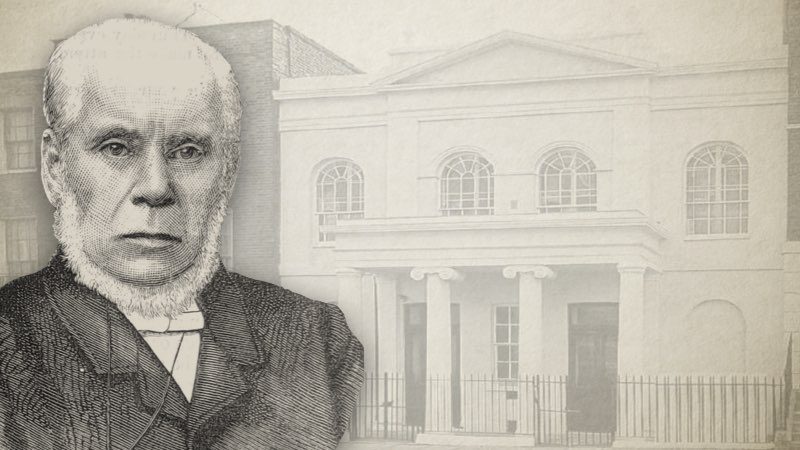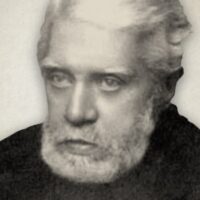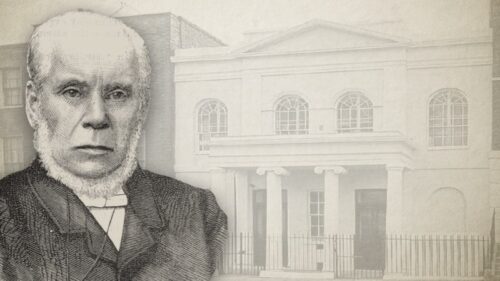
Chapter 1
“A time to be born.”—Ecclesiastes 3:2
Most of us have stood at eventide on some tall cliff that towered above the far-stretching ocean, glowing with the reflected tints of the setting sun; while each restless wave, as it rose and fell, caught the golden glory. Then, as fresh beauties struck us—as new effects of light and shade, harmony and contrast, successively claimed our admiration—we longed for the skill of an artist to depict the scene, for our delight in coming days. The wish, though natural, was vain. The radiance departed from the solemn west; the darkness crept on and hid the distant prospect; and as the evening bell warned us of the flight of time, we wended our homeward way, with faint and fast-fleeting recollections of a vision of grandeur and loveliness.
Somewhat similar has been the case with not a few of the worthies of the great King. They served their generation wisely and well. They won esteem and love. But none were found on earth able or willing to relate their struggles and successes; and their names, which might still stimulate men to holy enterprise and endeavour, have been suffered to pass into oblivion. Their sole ” record is on high.”
The story of one such life, however, it falls to the lot of the writer of these pages to do his best to perpetuate. Affection will, it is to be hoped, ensure a just and appreciative portrayal of his saintly character; candour shall repress all that is not strictly in accordance with fact; while reverence shall ascribe all glory unto “Him who sitteth on the throne and unto the Lamb for ever and ever.”
The good town of Colchester is one of considerable interest. Its relics of bygone ages attest to the activity and enterprise manifested by the generations of its inhabitants who lived in former times. In the civil war between Charles I and the Parliament, it was besieged by Sir Thomas Fairfax, and the townsmen, after bravely holding out for eleven weeks, were starved into a surrender. In more recent times it has been an important commercial centre. The inhabitants are a composite race, exhibiting many of the characteristics of their mingled ancestry—Saxon, Norman, and Flemish; a company of men and women from the Netherlands having made it their home in the year 1571, when driven, for conscience’ sake, from their fatherland.
To Colchester, long years ago, we cannot tell when or why, there came from far-off Dunkeld, in the Highlands of Scotland, some members of a family named Hazelton. Within the last few years, attempts have been made to discover their earlier history. Little, however, has been brought to light save the locality of their early home and the fact that their coat of arms was a lion rampant, surmounted by a crown, and surrounded with hazel leaves. The motto was, ” Pro patria uro,” I burn for my country. In Scotland solitary farmhouses, rather than villages,[1] as in England, were distinguished by the suffix “ton.” The family were, it may be presumed, originally the Hazeltons of Hazelton—the homestead of the hazels.
They appear to have settled, and married and inter-married with their Essex neighbours, till they became numerous and widely known. Some would seem to have possessed no small share of spirit and bravery. Smuggling was by no means regarded with popular disfavour, but as a commendable pursuit, in which all might engage with credit. The coast-guard was the object of universal aversion and scorn, and those who most successfully evaded its vigilance were the heroes of the village. Tales of cunning plans, midnight encounters, and secret hiding-places, wiled away many a hour by the glowing winter’s fire. To say, therefore, that some of the Hazeltons had a share in these deeds of wild adventure, is by no means to reflect on their integrity, when judged by the standard of morality current in their day.
About a hundred years ago, one of them was living with his wife and family at Colchester. The times were hard; their means small; their offspring numerous. How they contrived to find bread for their sixteen children is not now our concern. We have but to state that one of their sons was, in early days, apprenticed to a wheelwright, at the expense of the parish. He afterwards occupied a house in Magdalen-street, where he pursued his trade, acquired a connection, and married. John, the eldest child, was born on June 6, 1822.
We always regard, with ineffable pity, those whose early years were not happy; who have no tender memories of kindly smiles that brightened familiar faces; gentle words, that awakened the better feelings of the heart; and loving ministries, which should make youth a time of almost uninterrupted gladness. The memory of some parents is associated with unspeakable affection and veneration. The recollection of our mother’s love is fraught with fragrance and beauty. Our fathers are recalled as genial, grave, and gentle friends; whose principles we still revere, whose example we solicitously emulate, and whose names we bear with proud and grateful hearts. Our home, though, perhaps, long dismantled, is the one spot on which the soft, sweet sunlight ever seems to rest, and its influence ever follows us.
Not such, however, were the first surroundings of him whose story we have to tell. Seen in the dim perspective of sixty long years, it appears most sombre and cheerless. His parents were plain, honest, industrious people, of fair capacity, and considerable force of character. Their reputation was good; their integrity was commendable. Their goodness, however, was devoid of kindness and gentleness. Of godliness they were ignorant, and they made no profession of religion. The sacred influence was lacking which relieves business of its sordidness, deprives affliction of its sting, and invests common-place duties with the dignity of obedience to the high commands of Heaven. The Bible was an unopened book. The language of prayer and praise was never heard. Holy conversation was unknown; and the home life was, as it so often is where the Lord is unhonoured, hard, cheerless, and unsympathetic. Little John received but scant consideration. As the eldest child of the family, he was made a domestic drudge; and in accordance with the brutal philosophy of bygone years—that the only way to secure filial obedience is to inflict pain—was often severely beaten.
In his after life these circumstances were recalled with keen sorrow. We remember that at one of his annual meetings, a speaker casually remarked that while oriental names were generally chosen on account of their import, this was not the case with us. “Your name, sir,” he observed, turning to the chairman, “was probably not selected because it signifies ‘the grace of Jehovah.'” As our friend sadly shook his head in response, it was evident that a painful chord had been struck. His expression changed, and a sad, weary look overcast his countenance, and did not leave it for some time. It puzzled us then, but it is now explained. It occurred, if memory serves us, shortly before his father’s death in 1880.
He received his elementary education at St. Giles’ National School, Colchester. Here he was noted as being a boy of blight parts, and exceedingly good memory. To the last he vividly remembered how he used to stand on a seat at Church, in the garb of a charity boy, to repeat the longer answers in the Church Catechism, before the local magnates, and performing the task with credit.
“The child’s the father to the man,” is a familiar truism, which, in the present instance, is rather strikingly exemplified. It is evident that he very early began to think, and not with a boy’s vague wonder only, but inquiringly and reflectively. The Catechism set him thinking, as did also many of the statements made in sermons from the parish pulpit. His secret and audacious comment on some of the words of the learned divines who preached, was this: “When I grow up to be a man I will preach better than that.” On one occasion, the then Bishop of London, Dr. C. J. Blomfield, occupied the pulpit. The little charity boy, whose feet did not touch the ground, as he sat in the Church, eagerly anticipated the sermon. The text proved to be the Psalmist’s familiar exhortation: “Walk about Zion, and go round about her; tell the towers thereof; mark ye well her bulwarks; consider her palaces, that ye may tell it to the generation following.” The preacher, who was an effective orator, applied the words to the Established Church. The boy, open-mouthed, listened to and considered every word—only, however, to conclude that the positions of the discourse were untenable. “This cannot, I am sure, be right,” he thought to himself; “God could not have meant that text to refer to the Church of England.”
What progress he made at school we do not know. Of this we may be certain, that no opportunities were left unimproved. Probably, he could read an ordinary book with facility and pleasure; write a letter; and knew enough of arithmetic to perform all the common calculations that might claim his attention.
At fourteen years of age, when a bright-eyed, dark-haired boy, with an eager spirit and very affectionate heart, he left school, to commence the higher education, and undertake the graver duties of responsible life.
His early occupations were as various as uncongenial and unsatisfactory. His first work was that of leading horses attached to a plough, while his evenings were devoted to helping his parents—who, at that time, kept a small general shop—by weighing-up goods, and carrying them to their destinations. The basket that he used is still preserved. He then entered a shop at Maldon, in Essex, and ultimately found employment with his father in a distillery in his native town.
It is, however, certain, that the varied discipline of these changeful days told for good upon his character. During his engagement at the distillery, his father met with an accident, so severe as to necessitate his removal to an hospital, in which he remained several weeks. Admission was denied to his son. but with touching kindness, the lad would often run from his place of employment, during his brief dinner hour, and always felt sufficiently rewarded if he could but see his father at the window, and receive some responsive signs to his own signals of greeting. These were days of hard work. “He was,” says one who knew him well, “of an ardent and inquiring disposition, and never still for a minute.”
What this uncommon lad will do with himself in after years—or rather, what the Lord, whom, as yet, he knows not, will do with him—is to be told in our following chapters.
——————————-
[1] There are lone farmhouses in Kent which are named in accordance with the Scotch usage, Shottington, Wingleton. Taylor’s “Words and Places.”
William Styles (1842-1914) was a Strict and Particular Baptist preacher. He served as pastor for the churches meeting at High Wycomb (2 years); Lower Holloway (3 years); Providence, Islington; Keppel Street (10 years); West Ham (4 years); West Hill, Wandsworth (6 years). After his conversion to Christ while sitting under the ministry of the Congregationalists, he was baptized by C. H. Spurgeon and became a member of the Metropolitan Tabernacle. During this time, he enrolled in the Pastors’ School. He eventually embraced high views of sovereign grace and strict communion principles, thereby leading him to join the Strict and Particular Baptist denomination. He was an outspoken opponent of the pernicious teachings of duty-faith and the free-offer, believing that no church, minister or member had a right to identify as “Strict and Particular Baptists” if holding to those errors. He took a leading role in the Metropolitan Association of Strict Baptist Churches and was a supporter of the Strict Baptist Mission. Both of these organizations now embrace the errors of duty-faith and the free-offer, standing opposed to the faith and order of the Strict and Particular Baptists.
William Styles, A Guide To Church Fellowship (Complete)
William Styles, A Memoir of John Hazelton (Complete)




